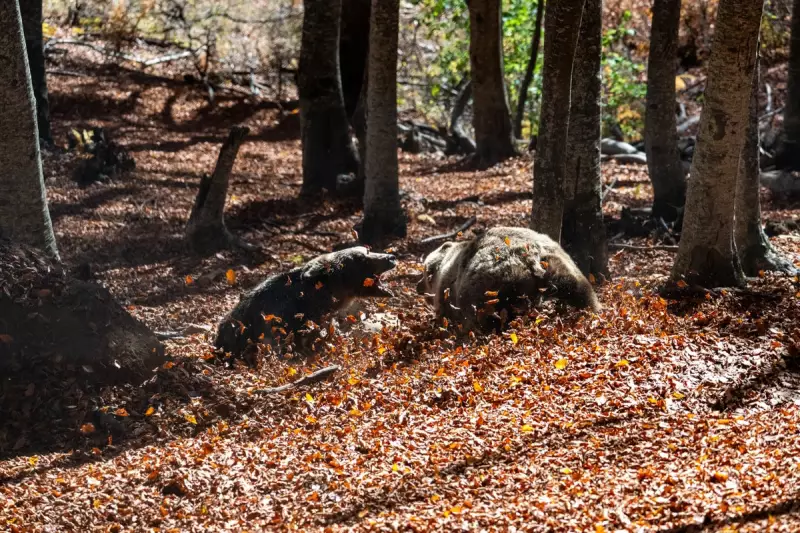
Greece's Top Predator Stages Dramatic Return
In the rustic villages of northwestern Greece, a quiet resurgence is causing significant upheaval. The brown bear, the nation's largest predator, has made a remarkable comeback, leading to increased encounters with humans and livestock. This resurgence, while celebrated by environmentalists, is creating a complex conflict between conservation efforts and the livelihoods of rural communities.
Farmers Face the Consequences
The reality of this growing population was starkly illustrated for farmer Anastasios Kasparidis. He discovered three of his sheep mauled to death, with large paw prints confirming the attacker was a bear. "It was a bear, a very big one, and they come often now," Mr Kasparidis recounted. He noted that he wasn't the only victim, with another farmer losing chickens and pigs to the predators.
Fearing for his livelihood, Mr Kasparidis was forced to move his remaining flock into a sheep pen near his house for protection. "Because in the end I wouldn't have any sheep," he explained. "The bears would eat them all." His experience in the village of Levea is becoming increasingly common across the region.
A Conservation Success Story
The rebound of bear and wolf populations in Greece is directly linked to their protected species status, which banned hunting. According to Professor Dimitrios Bakaloudis, a wildlife management specialist at the Aristotle University of Thessaloniki, brown bear numbers have increased roughly fourfold since the 1990s.
The most recent survey by environmental organisation Arcturos estimates that up to 870 brown bears now roam the forests of northern Greece. Established in 1992, Arcturos runs a sanctuary for rescued bears and wolves and has been instrumental in monitoring this recovery.
It's not just bears experiencing a population boom. Wolves have also seen their numbers rise significantly. Professor Bakaloudis confirmed that while wolves could only be found as far south as central Greece in 2010, they have now spread to the outskirts of Athens and into the Peloponnese in southern Greece.
Escalating Tensions and Broader Impacts
The growing wild animal populations have led to more frequent contact with humans, most of whom are unfamiliar with how to behave during an encounter. This lack of familiarity has bred fear, particularly after several serious incidents this year, including a child being bitten by a wolf and an elderly man injured by a bear in his yard.
In the village of Valtonera, community president Konstantinos Nikolaidis observed that the situation has changed dramatically. "The village used to be without wild animals. In the past, a wolf would appear once in a while," he said. "Now, wild boars, foxes, bears or wolves roam around or even inside the village. This has caused concern among all residents. It's now difficult for a person to walk around outside at night."
Experts caution that the issue is multifaceted. Panos Stefanou, communications officer at Arcturos, explained that habitat fragmentation, drought, lack of natural food, and the desertification of villages all contribute to bears approaching inhabited areas.
This complex problem isn't unique to Greece. In a significant development, European Union lawmakers voted in May to reduce protections for wolves across the EU's 27 member states, a move that gained support from European Commission president Ursula von der Leyen after her pony was killed by a wolf three years ago.
Professor Bakaloudis notes that non-lethal measures, such as using lights around property and proper waste disposal, can help keep wolves and bears at bay. However, Mr Stefanou warns against simplistic solutions, stating unequivocally, "Killing the animals is not what will solve the problem." As Greece navigates this challenging coexistence, the nation finds itself at the forefront of a broader European debate about balancing conservation with community safety.





